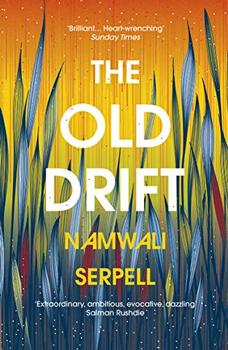Book Club Discussion Questions
In a book club? Subscribe to our Book Club Newsletter!
Please be aware that this discussion guide will contain spoilers!
- In many ways, Zambia itself is the novel's main character. How does Zambia adapt? What does it endure? And for its inhabitants, what is it like to be in a relationship with Zambia?
- The first two of the novel's numbered parts—The Grandmothers, The Mothers, The Children—emphasize maternity. How do these images of womanhood compare to the images of the female body that you usually see in novels? What role does fatherhood play in The Old Drift?
- In "The Falls," fever-laden Percy grabs Gavuzzi's hat (with a patch of hair), leading Ada to briefly abandon young Lina, who then delivers a debilitating blow to N'gulube, whom Percy later riddles with bullets, mistaking him for a pig. Percy is not prosecuted; in fact, he wins a silver cup from the local shooting club. When we later meet Bernadetta, we learn her father was N'gulube. How does this "tiny chaos" (as the swarm narrators call it) serve as a metaphor for the rise and fall of empires? Told entirely in Percy's voice, how does "The Falls" frame the rest of the novel?
- What does the story of Sibilla and Federico tell us about perceptions of beauty and the power of perception?
- Can all of the challenges in Agnes and Ronald's marriage be traced to the fact that they're an interracial couple? When her involvement in the Marxist Reading Club clashed with Ronald's academic perspective, what did that illuminate about the nature of revolutions?
- During Matha's years at the Lwena mission school (disguised as a boy), what does she learn about access to knowledge and the difference between being smart and being wise?
- As the author weaves broad strands of history—from Italy, England, Zambia, and India—into the storyline through the lineages of the characters, what is revealed through the lineage of Naila and Isabella? What is revealed about the origins of the power to oppress—politically, militarily, economically, socially, and even emotionally?
- Is Sylvia a tragic figure, or do you see her as triumphantly resourceful, determining her own fate?
- Do you approve of Lee's medical-testing techniques? How is his approach to medicine different from Joseph's? How did The Old Drift change your understanding of the AIDS epidemic and its particular devastation in Africa?
- Scavenging an airplane seatbelt and a toy helicopter, Jacob overcomes his circumstances in part because of his gift for engineering but also because of his inspiring grandmother, star astronaut Matha. Who are the Mathas in your life—the people who made it possible for you to become what you were meant to be?
- How do the dangers faced by Joseph, Jacob, and Naila in "The Dam" compare to ones their parents and ancestors experienced? How does the children's generation embody the differences between colonial protectorate Northern Rhodesia and independent Zambia?
- What is the ultimate message in the final italicized paragraphs, from the voices that described themselves in the beginning of the book as "the thin singers, the bare ruined choir, a chorus of gossipy mites," who observed that "with enough time, a swarm will evolve a conscience"?
- What was it like to be immersed in Namwali Serpell's inventive writing style, which features imaginative side stories, clever word play, surreal maladies, and tragicomedy against a backdrop of deeply moving portraits of humanity? What sets The Old Drift apart from other multi-generational sagas you have read?
- Re-read the novel's epigraph, taken from Virgil's The Aeneid, which tells the epic story of a Trojan hero whose descendants create Rome. With references to Lethe, the river of forgetfulness, what makes these lines especially appropriate for The Old Drift?
- Find Old Drift Cemetery on a map. What does the map tell you about the natural elements and the human imprint on this part of the globe? How did you react as you watched the Old Drift evolve from being a point of passage for the living to a resting place for the dead?
Unless otherwise stated, this discussion guide is reprinted with the permission of Vintage.
Any page references refer to a USA edition of the book, usually the trade paperback version, and may vary in other editions.
